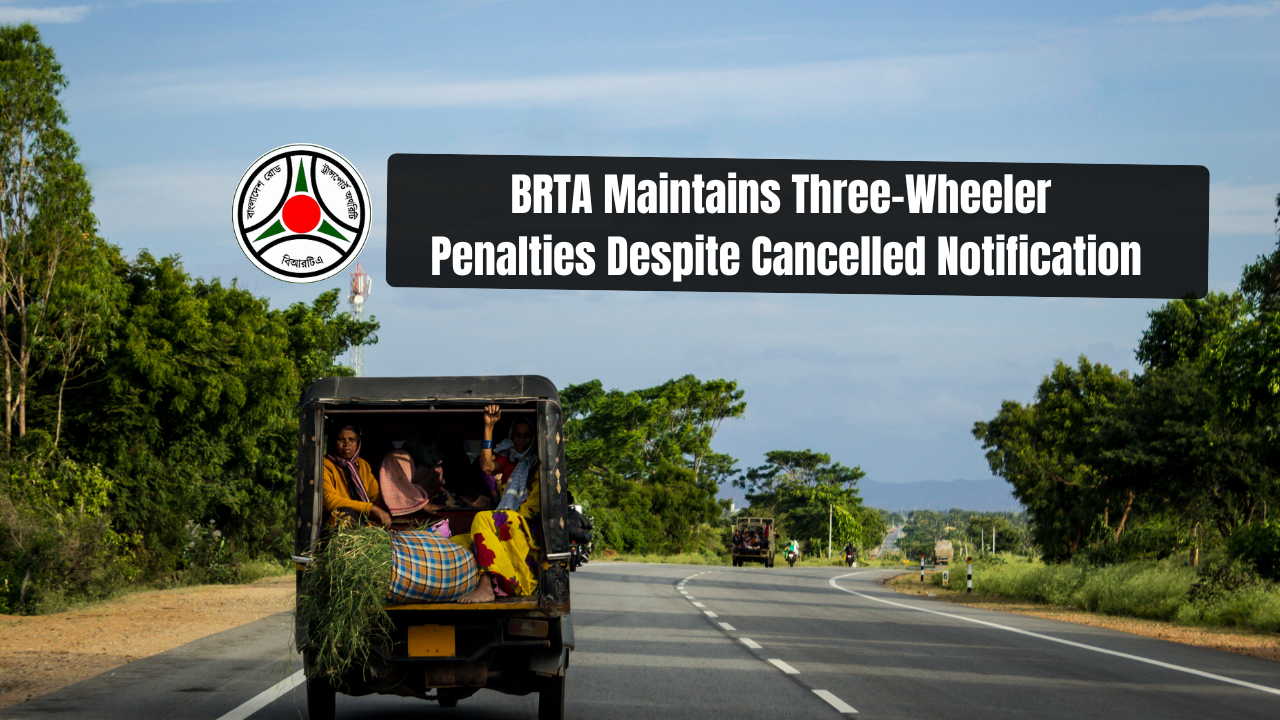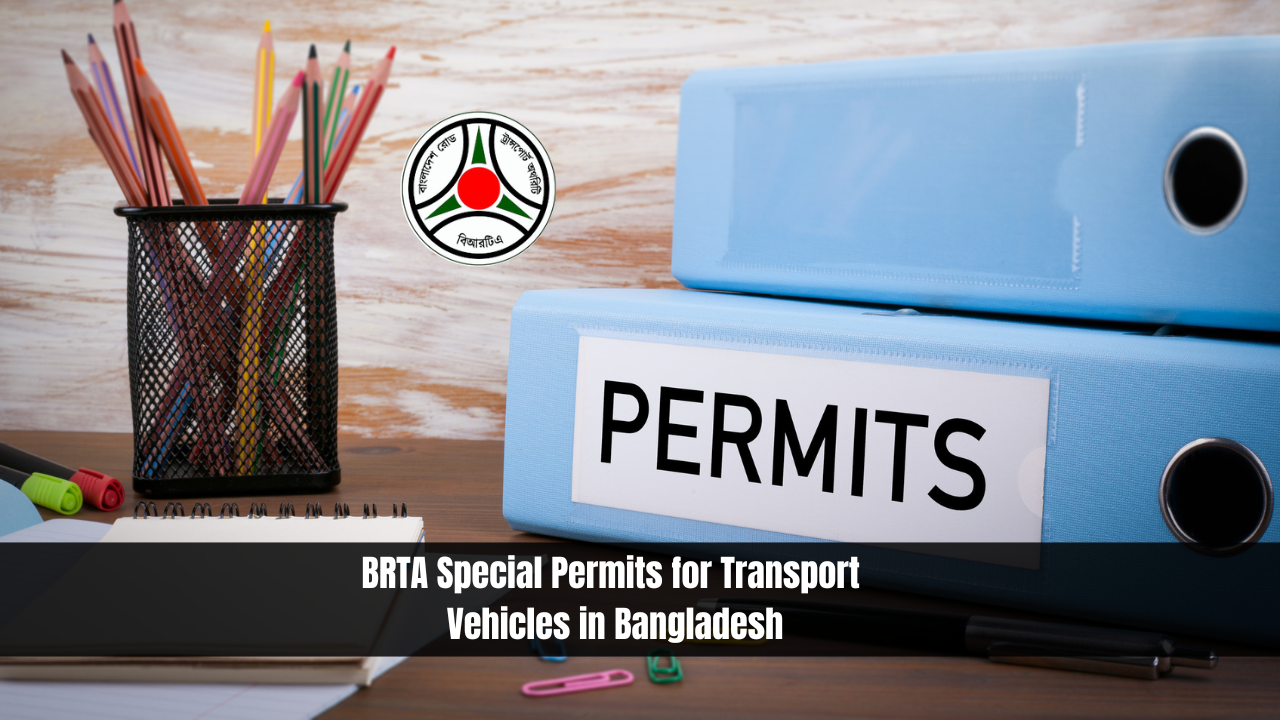BRTA Maintains Three-Wheeler Penalties Despite Cancelled Notification

BRTA Maintains Three-Wheeler Penalties Despite Cancelled Notification. The Bangladesh Road Transport Authority (BRTA) has made headlines again as it faces backlash over recent regulations targeting overcharging by gas and petrol-powered three-wheelers, especially CNG-run autorickshaws. While the agency officially withdrew its February 10 directive, it clarified that the Road Transport Act, 2018, and all relevant fines and penalties still apply.
Read Also: BRTA Service Portal
BRTA Withdraws Directive, But Rules Still Stand
On February 10, 2025, the BRTA issued a directive warning of strict legal action against autorickshaw drivers who charge passengers more than the metered fare. However, due to mass protests from drivers across Dhaka, the directive was officially withdrawn on February 16, 2025.
Despite this reversal, BRTA Director Shitangshu Shekhar Biswas clarified that “the rules, penalties, and fines remain unchanged” under the Road Transport Act, 2018. He emphasized that the original directive was merely a reminder of existing laws.
“Our intent was not to introduce new regulations, but to reinforce the enforcement of already established fare policies,” he told Dhaka Tribune.
Protesters Block Dhaka Roads, Demand Fare Revision
Starting early morning, key locations across Dhaka—including the Dhaka-Chittagong Highway, Gulistan, Rampura, Mirpur, and National Press Club—were blocked by angry autorickshaw drivers. These protests disrupted traffic in major areas like Rayerbagh, Jatrabari, Hanif Flyover, and Mirpur Road, causing significant passenger suffering and city-wide gridlocks.
The protesters have demanded:
- A revision of meter-based fares
- Withdrawal of fines for not using meters
They have vowed to continue demonstrating until their demands are met in full.
Autorickshaw Statistics – A Growing Sector
As per BRTA records, there are 20,894 registered autorickshaws in Dhaka. The peak of registrations occurred in 2019 with 6,839 new vehicles. In 2018 alone, 5,637 autorickshaws were registered, highlighting the rapid expansion of this mode of public transport.
Passenger Advocacy Group Raises Concerns
The Bangladesh Jatri Kalyan Samity (BJKS), a prominent passenger welfare organization, held a press conference criticizing BRTA’s handling of the situation.
Mozammel Haque, General Secretary of BJKS, stated:
“Laws must be implemented, not just documented. Unfortunately, BRTA is bowing down to syndicate pressure instead of protecting passengers.”
He accused a powerful syndicate of orchestrating the unrest to demand:
- 5,000 new autorickshaw permits in Dhaka
- 4,000 additional permits in Chittagong
Mozammel further claimed that these syndicates have long exploited regulatory loopholes, pressuring BRTA to issue unjustified fines and rollback enforcement when challenged.
Allegations of Corruption and Collusion
BJKS also made serious allegations against former Road Transport and Bridges Minister Obaidul Quader and his family. Mozammel Haque accused them of enabling massive corruption in the replacement process of 26,996 CNG autorickshaws, allegedly embezzling around Tk1,200 crore.
According to Haque:
- CNG autorickshaws that should cost Tk3 lakh are being sold at Tk30–35 lakh
- Key BRTA officials involved in the scam have retained their posts for over a decade
- These officials are accused of using policy manipulation to maintain their grip over the industry
Legal Framework – Road Transport Act, 2018
The February 10 directive referred to Section 35(3) of the Road Transport Act, 2018, which states that:
- All permit-holding autorickshaws must accept passengers for any destination
- Drivers are prohibited from charging more than the metered fare
Violations are punishable under Section 81, which includes:
- A fine of up to Tk50,000
- Six months’ imprisonment, or both
Despite the protest-driven withdrawal of the directive, BRTA maintains that these legal provisions are still in full force.
Conclusion
ongoing tension between public transport regulations and driver livelihoods highlights the need for balanced policy implementation. While enforcing fair fare systems is crucial for protecting passengers, ignoring the root causes of unrest such as poor earnings, fuel costs, and corruption only leads to greater chaos.











